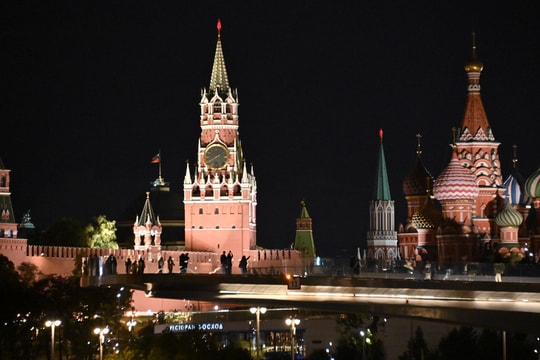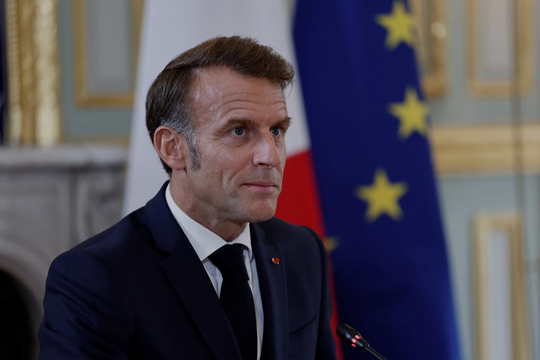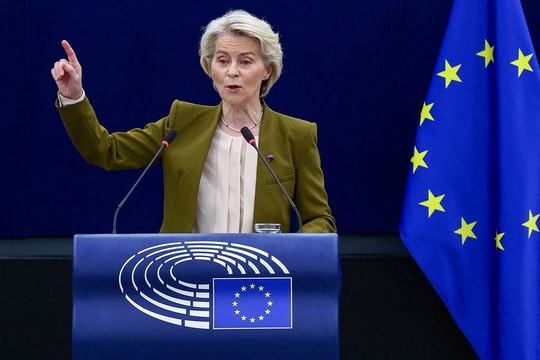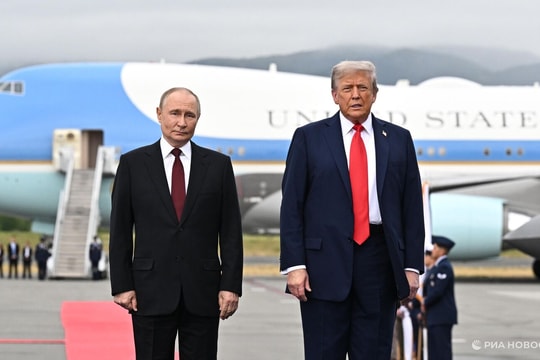Unexpected scenario in Spain
(Baonghean) - On the evening of October 10, the attention of the international community focused on Spain, where Catalan President Carles Puigdemont gave a speech before the local legislature.
Contrary to analysts' predictions, Puigdemont did not unilaterally declare independence, but instead proposed an intermediate option - declaring independence but postponing it. The move is believed to open the door to dialogue between Catalonia and the central government, although this possibility has not yet been clearly defined.
The wise choice
In a tense atmosphere with helicopters hovering overhead and Catalan police armed with automatic rifles blocking the legislative building below, President Carles Puigdemont appeared an hour behind schedule. According to internal sources of the autonomous region's government, Mr. Puigdemont had to spend time talking more with European Union (EU) officials and representatives of the movements in Catalonia.
It is unclear whether it was due to the impact of these exchanges or not that Mr. Carles Puigdemont made a statement that was not what the public expected, which was the promise that "Catalonia will become an independent country". However, the deadline for Catalonia to become an independent country was left open "in the next few weeks" to conduct negotiations with the Spanish Government.
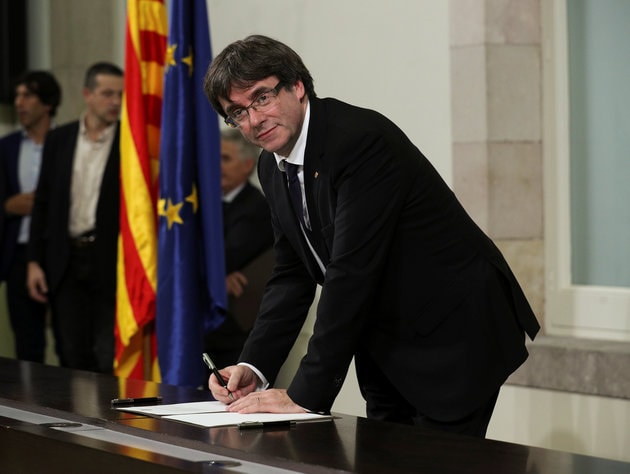 |
| President Carles Puigdemont signed the declaration of independence, but postponed it shortly afterwards. Photo: Reuters |
Mr. Carles Puigdemont's declaration is considered a middle ground, not exactly a declaration of independence, nor is it a complete abandonment of the goal of secession. Although this declaration angered independence supporters in Catalonia, it is considered by analysts to be the wisest and most reasonable choice at the present time. It is undeniable that the declaration of independence is a very strong political will of the Catalan authorities, especially of President Carles Puigdemont, but the current situation forces him to consider carefully.
Firstly, the massive demonstrations by the anti-independence group – who called themselves the “silent crowd” – before Mr. Carles Puigdemont’s speech revealed the deep divisions within Catalonia itself. That made the basis for Mr. Carles Puigdemont to declare independence as a result of the referendum less solid, and also posed the risk of conflict between the forces in Catalonia.
Second, although countries have responded very cautiously, it can be seen that Catalonia's unilateral declaration of independence has not won the support of the international community. Even the European Union, which has always adhered to the principle of non-interference in the internal affairs of its member states, had to make a rare exception by criticizing Catalonia's steps and calling for negotiations between the two sides.
Third, the Spanish government has shown itself to be extremely tough and ready to take necessary steps if Catalonia unilaterally declares independence, including the unprecedented option of suspending Catalonia's autonomy, dissolving the legislature and holding elections, and even arresting President Puigdemont. Therefore, declaring independence would be a risky move, possibly satisfying nationalism and regionalism but pushing this autonomous region into an uncertain future.
What to expect from dialogue?
Carles Puigdemont’s announcement may have given Europe a temporary sigh of relief, as the deadline of “a few weeks” that Puigdemont mentioned means an opportunity for the central government and the Catalan government to find a less confrontational solution. European officials say that Puigdemont has not pushed things to the point of no return. Meanwhile, Puigdemont himself has admitted, “we have to start negotiations because otherwise we may never achieve our objectives.”
According to analysts, the purpose of all political developments in Catalonia in recent times is ultimately the desire of the ruling class to have stronger autonomous power. In other words, the separatist faction in Spain also does not want to "play a risky gamble" that they risk losing everything, instead of bringing the Spanish government to the negotiating table and making some concessions on power.
In fact, even before Carles Puigdemont made his decisive speech to the local legislature, Catalan officials had repeatedly “shot” the Spanish government about their willingness to engage in dialogue, preferably with the mediation of the European Union. However, the Spanish government rejected all proposals on the grounds that it would not negotiate an unconstitutional act.
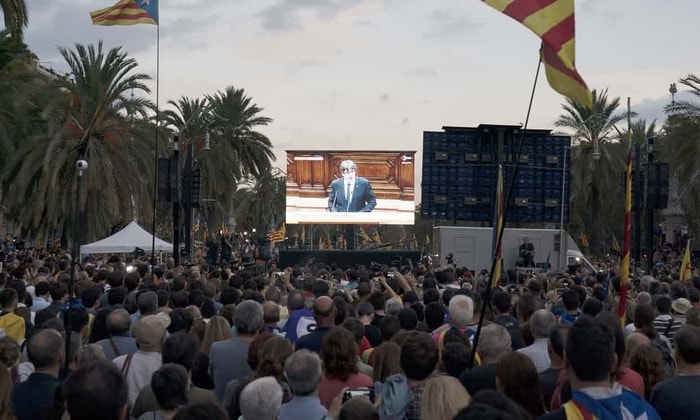 |
| Independence supporters wait for Puigdemont's announcement outside government headquarters. Photo: AP |
But given the current situation, the Spanish government may need to make some concessions, as the “few weeks” deadline that Mr Puigdemont has given is the only chance they have to get things back on track. So far, the Spanish government’s stance has been very firm. But Europe is likely to put pressure on Madrid, as the current deadlock and tension affects not only Spain but also Europe.
At home, the Spanish people are probably also waiting for their Prime Minister to do more, instead of just sticking to the provisions of the Constitution. In fact, most observers believe that the best solution is for both sides to talk and make concessions, with Catalonia pledging not to secede and the Spanish government giving more power to the autonomous region of Catalonia, especially in terms of tax control.
It can be said that since the Catalan independence referendum, all eyes of Europe and the world have been on Spain. But now, the focus has temporarily shifted from Catalan President Carles Puigdemont to Spanish Prime Minister Mariano Rajoy. At the most important moment in Spain in decades of democracy, will Mr. Rajoy seize the opportunity to dialogue and prove that his government can handle the crisis appropriately, worthy of Spain's high position in the European Union?
Thuy Ngoc
| RELATED NEWS |
|---|

